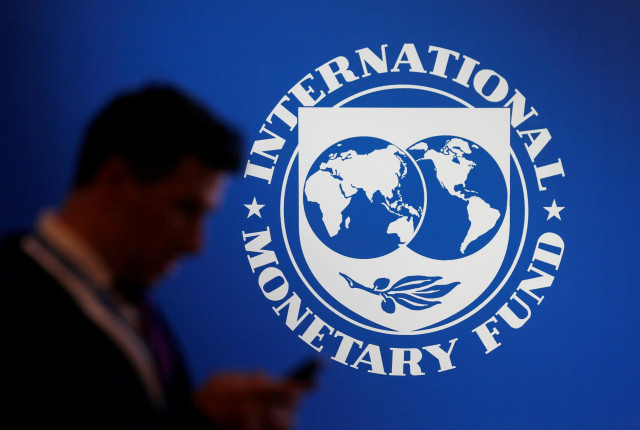IMF mission returns to Washington sans staff level agreement
Purpose of the IMF visit was to gauge Pakistan’s budget preparations

The International Monetary Fund (IMF) said on Friday that significant progress has been made towards reaching a staff-level agreement with Pakistan for an Extended Fund Facility, however, its mission returned to Washington without handing over a new bailout package.
The IMF’s two-week assessment mission concluded without striking a new deal as Islamabad grappled with the challenges of political instability and enhanced economic vulnerabilities.
“Building on the economic stabilization achieved through the successful completion of the 2023 Stand-by Arrangement, the IMF and the Pakistani authorities made significant progress toward reaching a Staff Level Agreement (SLA) on a comprehensive economic policy and reform program that can be supported under an Extended Fund Facility (EFF)," said Nathan Porter after the end of the visit.
Pakistani sources said that the IMF gave a very hard time on energy, monetary and taxation policies. They said that the implementation of all these conditions would put an extraordinary burden on the people and some conditions carry implications for bilateral relations.
It will then decide on whether to give a programme to Pakistan or not.
“Based on the preliminary findings of this mission, staff will prepare a report that subject to management approval, will be presented to the IMF's Executive Board for discussion and decision”, added Porter.
Led by its Mission Chief Nathan Porter, the IMF delegation stayed in Pakistan for two weeks and met with key stakeholders. The IMF team also held a breakfast meeting with the US ambassador to Pakistan Donald Blome at the residence of the IMF Resident Representative Esther Perez last Wednesday, according to government sources.
The IMF mission had quietly landed in Pakistan on May 10 and held meetings with Pakistani authorities. However, in its press statement, the IMF said that the mission began on May 13 and ended on May 23
Read IMF to vet budget before cabinet
A key government functionary told The Express Tribune that the purpose of the IMF visit was to gauge Pakistan’s budget preparations and see whether its next fiscal year economic framework was in line with the overall objectives of ensuring fiscal and external sector sustainability.
The finance ministry told Prime Minister Shehbaz Sharif last week about the conditions of the IMF programme, including maintaining a primary budget surplus of 1% of the GDP or Rs1.25 trillion.
The overall budget deficit is projected at 6.8% of the GDP or Rs8.5 trillion. The interest payments are projected at Rs9.7 trillion.
The PML-N led coalition government is struggling to maintain economic stability amid rising political temperatures. It had hoped to finalize Extended Fund Facility Programme at the earliest but the IMF has linked any future deal with the approval of the next budget in line with its framework.
Porter said that the mission visited Islamabad to discuss Pakistan’s plans for a home-grown economic programme that can be supported under the IMF’s Extended Fund Facility (EFF).
However, Pakistani authorities said that the IMF did not accept their fiscal numbers and position on the monetary policy.
“The authorities’ reform programme aims to move Pakistan from economic stabilization to strong, inclusive, and resilient growth” said Porter.
He added to achieve inclusive growth Pakistan was planning to continue to strengthen public finances to reduce vulnerabilities by improving domestic revenue mobilization through fairer taxation while scaling up spending for human capital, social protection, and climate resilience; secure energy sector viability, including reforms to reduce the high cost of energy.
The sources said that the IMF told Pakistan that the high cost of energy could be reduced by renegotiating the idle capacity payments to power producers. Pakistan and the IMF have long been desiring to reopen Chinese energy deals.
Porter said that Pakistan will have to continue progress towards low and stable inflation by appropriate monetary and exchange rate policies; improve public service provision through state-owned enterprise (SOE) restructuring and privatization; and promote private sector development, by securing a level-playing field for investment and stronger governance.
The mission chief further said that the IMF and Pakistan will continue policy discussions virtually over the coming days aiming to finalize discussions, including the financial support needed from the IMF and Pakistan’s bilateral and multilateral partners.



















COMMENTS
Comments are moderated and generally will be posted if they are on-topic and not abusive.
For more information, please see our Comments FAQ